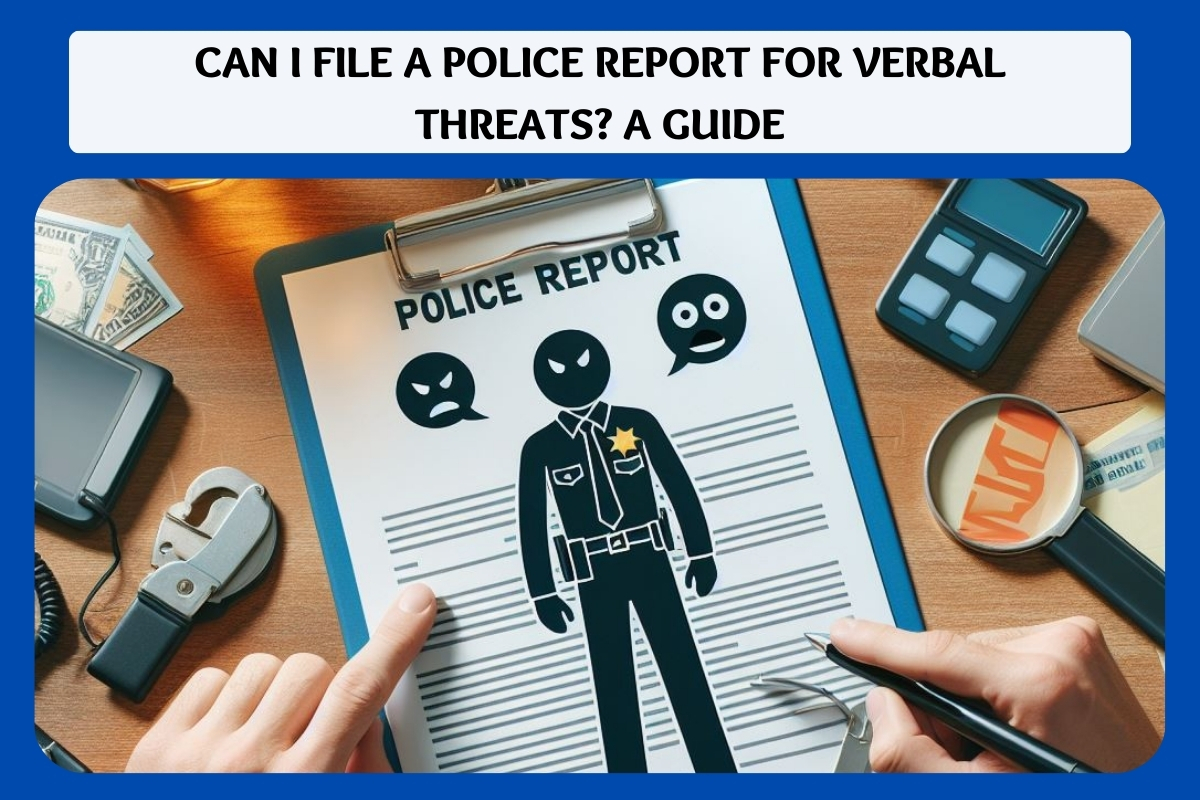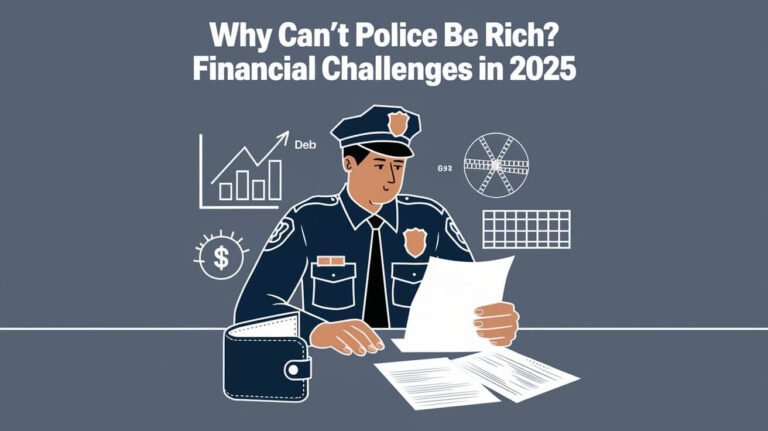Can I File a Police Report for Verbal Threats? A Guide

Verbal threats can be extremely unsettling and leave you feeling scared or intimidated. Yes, in many cases, you can file a police report for verbal threats. This blog post will cover what constitutes a verbal threat, when it’s appropriate to report one to the police, how to file a report, potential outcomes, and more.
What Constitutes a Verbal Threat?
A verbal threat refers to someone communicating an intent to harm you, your loved ones, or your property. According to most state laws, a verbal threat qualifies as a criminal act if it meets the following criteria:
- It is a direct threat of violence or harm, rather than just offensive language. For example, “I’m going to beat you up” is a threat, while “You’re an idiot” is not.
- The threat is specific and unambiguous, leaving no doubt about what was threatened. Vague statements may not qualify.
- The threat leads the recipient to feel sustained, reasonable fear for their safety or the safety of others. One-off angry outbursts are different from prolonged terror.
Types of Verbal Threats
Verbal threats can take different forms:
- Threats of violence/bodily harm: Any statements threatening to physically attack, injure, or kill someone. For instance, “I will shoot you.”
- Threats against property: Threats to damage belongings or commit arson/vandalism. Like “I’m going to bash your car.”
- Conditional threats: Threats that hinge on a condition, even if not immediate. “If you don’t pay me, I’ll hurt your family.”
No matter the type, a threat that instills genuine fear of violence or harm from the person making it could be considered criminal.
When Can You File a Police Report for Verbal Threats?
Not every verbal threat warrants a police report, but you should file one when:
- The threat is unambiguous and specific, explicitly stating the intended violence or harm. Vague comments may not qualify.
- The threat truly made you fear for your safety or others’, beyond just being offended or momentarily upset. The fear must linger.
- The threat seemed legitimate, based on the circumstances and the perpetrator’s ability to potentially carry it out.
For example, you’d want to report a detailed death threat from an ex-partner, not an outburst from a frustrated stranger. Idle insults or jokes are not criminal verbal threats.
Imminent Danger vs. Non-Emergency
How you report the threat partially depends on whether the danger feels imminent:
- Call 911 immediately if the threat gives reason to believe violence is about to occur. An angry person actively making threats is an emergency.
- Use the non-emergency police number if the threat was made earlier or the perpetrator is not presently a risk to you or others. This files an official report to document the incident.
When in doubt, calling emergency services allows law enforcement to quickly assess any imminent dangers. They can always downgrade the call if it is a non-emergency.
How to File a Police Report for Verbal Threats?
Calling the Police
For emergencies, dial 911 or your local emergency number. Provide:
- Your name and location
- Details about the threat (who, what, when, how)
- Any background context about your relationship to the perpetrator
For non-emergencies, use the non-emergency police number (often listed online) to report details over the phone.
Visiting the Police Station In Person
You can also visit your local police station to file a report. An officer will document:
- Specifics about the threat
- How it led you to reasonably fear for your or others’ safety
- Any evidence you can provide (see below)
- A signature authorizing investigation into the threats
Filing a Report Online
Many departments allow filing reports online for non-emergencies, like threats received via text/email/online. Follow instructions on their website.
Obtain an Official Written Report
Whether reporting emergencies or non-emergencies, get a copy of the written police report for your records once it’s been processed, typically about 1 week later.
Evidence to Document Verbal Threats
Any evidence can greatly strengthen your report and the legal case should charges be filed. Try to document:
- Audio or video recordings capturing the verbal threat
- Texts, emails, voicemails, or other communication records containing threatening messages
- Witness statements from anyone who heard the threat
- Details about your sustained fear, like having to miss work, getting security systems, etc.
- Photos/videos if the person made threatening gestures or damaged property
Save all potential evidence carefully. It will be invaluable if the case moves forward.
Potential Outcomes After Filing a Report
What happens after reporting a verbal threat depends on the circumstances and evidence. Potential outcomes include:
- Criminal charges for making criminal threats: If probable cause exists after investigation, the perpetrator could be arrested and charged with a misdemeanor or felony offense.
- Penalties like fines or jail/prison time: Misdemeanor convictions often mean fines up to $1,000 and/or jail time up to 6 months or 1 year. Felonies risk higher fines and longer prison sentences, sometimes even multiple years.
- Issuance of a restraining or protection order: A judge may approve temporary or permanent protective orders prohibiting the threatening person from contacting or approaching the victim if threats continue.
So filing a report creates an official record and initiates a process with potentially serious legal consequences for the perpetrator.
Defenses Against Criminal Threat Charges
Those accused of making criminal threats can mount a legal defense arguing lack of intent, context misunderstanding, mental illness, or other factors like:
- No actual intent to carry out violence, just blowing off steam or speaking figuratively.
- No reasonable, sustained fear experienced by the threat recipient.
- Freedom of speech protections if it was hyperbole rather than a true threat.
- False allegations out of spite if the accuser had ulterior motives.
An experienced criminal defense lawyer is recommended to navigate charges for verbal threats.
When Verbal Threats Cross the Line
Certain types of verbal threats are treated especially seriously due to wider implications:
- Hate crimes and threats based on race, religion, gender, etc. can incur enhanced charges beyond just criminal threats due to civil rights violations.
- Cyberbullying, cyberstalking, and online harassment are forms of verbal threats conducted via digital mediums like social media that may involve additional charges.
- Verbal threats in domestic abuse situations often escalate to physical violence and are prosecuted accordingly.
In these cases, the threats take on additional legal gravitas due to the hate/bias motivations or contexts involved.
In Short..
Suffering verbal threats can be extremely distressing, even traumatic. But the law provides recourse, as specific threats intended to instill reasonable fear may constitute criminal behavior.
If you’ve received a verbal threat that made you fear violence or harm, report it to the police. Provide documentation like recordings, communication records, witness statements, and descriptions of how the threats made you afraid. Lengthy investigations and serious criminal charges could follow for the perpetrator.
While false allegations sometimes occur, law enforcement takes credible verbal threats extremely seriously. Speaking up officially documents the threats and demonstrates your sustained fear, which a court would consider if charges are filed. Don’t hesitate to report any unambiguous threats that truly frightened you.






